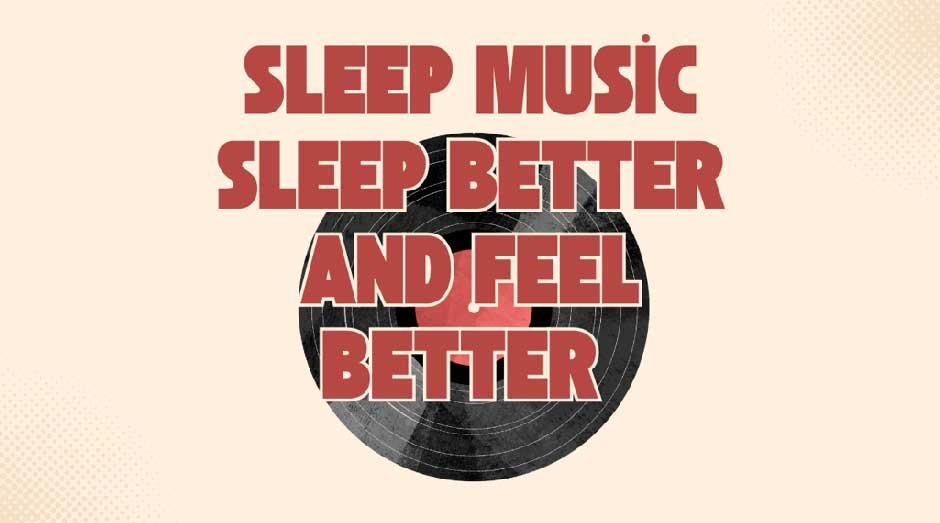Skip to the good bit
ToggleFalling asleep isn’t always easy. I’ve worked with a lot of people with racing minds, stress, or just a restless brain at bedtime. And to be honest, I have been there myself. Something that helped me—and a lot of my students—was sleep music.
Music has been a source of relaxation for thousands of years, and in recent years has emerged as a sleep factor. It has been established that listening to calming music prior to sleeping can soothe a racing heartbeat, reduce stress hormones, and improve sleep. But it’s not music in general. The right sounds can be what makes rest a reality and a sleepless night a nightmare.
If you’re looking for relaxation with sleep music, you can be interested in marketing your online presence as well. You can use Instagram services to increase your online visibility.
Now, let’s delve deeper into how sleep music works, what types work best, and how to build the perfect playlist.
How Sleep Music Affects the Brain
Music affects the brain very powerfully. It has a direct effect on the autonomic nervous system, which governs heart rate, breathing, and stress. When you listen to soft, calming music, your body naturally reacts by slowing and calming and making it easier to fall asleep.
The Role of Brain Waves
Sleep music influences brain waves, particularly alpha and theta waves, by which relaxation and sleep result. Some studies indicate that there are specific frequencies that stimulate delta waves, which define sleep. This explains why you can fall and stay longer in sleep with some music.
Melatonin and Cortisol Regulation
Stress is sleep’s worst adversary. It’s tougher to unwind when cortisol, a stress hormone, gets released in excess by your body. Calming music decreases cortisol and raises melatonin, a sleep hormone. It’s no wonder listening to calming melodies before bedtime can put you in a wonderful mood to sleep.
Best Types of Music for Sleep
Not all music has sleep-inducing properties. Some tones and genres work better than others.
Classical Music
I often recommend classical music to those with difficulty sleeping. The soothing, non-vocal music calms the brain into a peaceful frame. It has been suggested in studies that listening to classical music with a tempo rate between 60-80 BPM can improve sleep quality to a considerable extent.
Ambient Music
Some of them like nature sounds to work even better than music. Ocean waves, rain, and forest sounds best because they mimic natural environments and make the brain feel safe and comfortable. Ambient music, which has a majority of soft electronic sounds and nature sounds, also leads to sleep.
Binaural Beats and White Noise
Binaural beats provide another alternative that’s worth looking into. They use different frequencies in each ear to stimulate brainwaves, placing the brain in a relaxed state. White noise, in comparison, cancels out background noises and offers a constant, calming environment in which to sleep.
How to Create a Personalized Sleep Playlist
One mistake that many make is to just pick random soft songs and cross fingers. The right playlist does matter.
Choose the Correct Tempo and Rhythm
The ideal tempo for sleep music would be between 60-80 beats per minute. This aligns with the natural resting heart rate, and it can be easier to calm your body. Anything faster and more upbeat has just the opposite.
Avoid Lyrics Essentially
Lyrics can be distracting because they require you to read and process them. Instrumental music, meditation music, or soft piano music would be best. But some prefer to have comfort in slower and calming songs with soft vocals. It’s a matter of trial and error.
Use a Sleep Timer
One of the biggest mistakes is having music playing all night. It’s great to drift off to sleep with music, but to have it playing for the whole length of a night can break into deep sleep cycles. Utilize a timer to automatically stop music after 30-60 minutes. Most software like Spotify and YouTube have it.
What Science Knows About Sleep Music
Research on sleep music is plentiful, and findings confirm: it does work.
- A 2019 study found that listeners who slept following listening to 45 minutes of calming music went to bed earlier and slept more soundly compared to those who didn’t.
- Another study has shown that music relieves insomnia symptoms and improves sleep efficiency.
- Music therapy in hospital settings helps ease pain and promote sleep. Similarly, calming content on TikTok has a measurable emotional impact, with boosting followers for therapeutic content resulting in over 73% higher engagement.
The science has it: calming music can be a sleep changer.
Common Mistakes Individuals Make with Sleep Music
Even though sleep music can be extremely effective, I have witnessed people commit small mistakes that reduce its effectiveness.
- Playing music too loud – You do not want to be relaxed, you want to have a concert in your room. Play softly.
- Using the wrong genre – Don’t use high-energy or high-emotional songs because they keep you mentally active.
- Relying on it excessively – Sleep music is a tool, not a magic pill. Use it with good sleep hygiene to get best results.
Conclusion
Sleep music works because it speaks directly to the body and brain. It slows your heart rate, reduces stress, and helps you fall asleep without effort. When used right, it becomes a reliable part of your nighttime routine.
People respond to calm. Whether it’s through music or quiet digital content, what relaxes you can also connect you with others. If you share it, don’t be surprised when it starts to build real traction.







